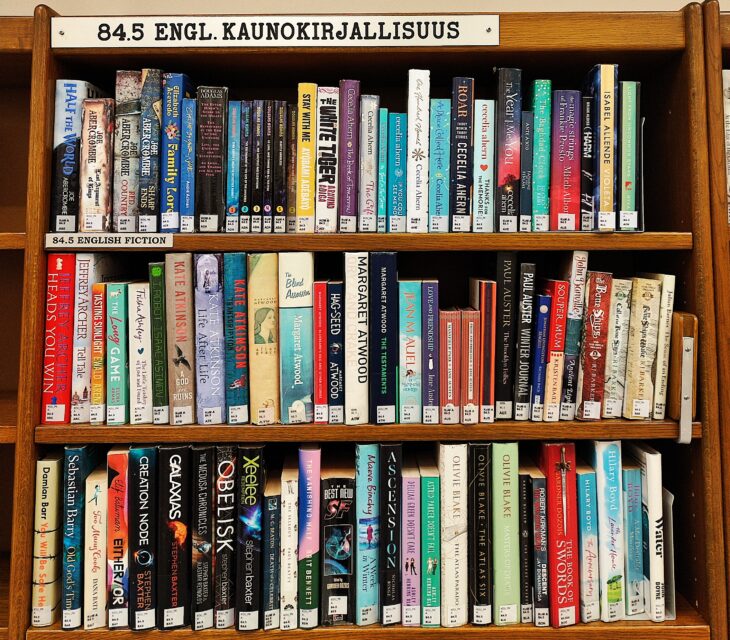
Fiction vs. Nonfiction: What is Better for Human Brain
Vol 27, Issue 3, 27 September 2024
Difference between fiction and nonfiction literature
Basically, fiction is something that has been made up and would not (or doubtfully) happen in real life. Some genres of fiction are romance, crime, horror, or fantasy. Meanwhile, nonfiction texts are based on facts and real life. Genres of nonfiction literature are biography, academic texts, philosophy, self-help, and history. Here I would like to compare these two and find out what benefits they bring to us!
Fiction literature
Many scientists agree that reading fiction literature can improve people’s empathy, creativity, and ability to understand feelings. It increases our social skills. While reading a fiction story, we can feel the character’s emotions and consider their goals and desires as our own. It extends our worldview, because we have an opportunity to live someone’s life as we read a fictional story. Psychologist Diana Tamir has done research and realized that people who often read fiction literature have better social cognition, which means that they have more skills at working out what other people feel and think. Those who read novels have less need for cognitive closure, which identifies that they have more creativity and less rationality. Reading fiction books can even relax your body by lowering your heart rate and easing the tension in your muscles. A 2009 study at the University of Sussex found that reading can reduce stress by up to 68%.
Nonfiction literature
Speaking of nonfiction books, one of its biggest roles is to prepare people to accept the future without pain and to encourage a flexibility of the mind. Many scientists and people refer to nonfiction books as a source of building and increasing your vocabulary and language skills. People are less likely to meet scientific words in fiction books, so they are working on your lexicon. Facts from science books teach us about the world around us and help us understand our place in it. Moreover, nonfiction books teach us how to look for information and use it in our daily lives. It helps us explore our interests, hobbies and likes. Research shows that it is not that overwhelming to study in university or look for a job for those who have been reading nonfictional books, as it prepares them for real life with challenges.
People’s opinion
Additionally, I would like to share average people’s opinions that have nothing to do with science and research. For instance, my father associated nonfiction with bones and fiction with muscles, which clears that there is no point in reading scientific books without emotions of people. I would also like to quote some people from Reddit discussion forum.
“I get pleasure out of both, and of course both help expand the dimensions of my language. Non-fiction teaches me facts, ideas, and concepts, and I get satisfaction from feeling my worldview expand. Fiction gives me a story, lets me walk in someone else’s footsteps, and teaches me about human nature. I get satisfaction from feeling the space inside me expand, becoming more insightful, empathetic, and imaginative.”
“Quality nonfiction develops a narrative curve and offers a truth about human experience. Quality fiction develops a narrative curve and reveals a truth about the human experience.”
“…I have a special place in my heart for nonfiction. I am curious about many different subjects and reading good nonfiction feels like having a conversation with a friend while exchanging ideas. It’s like we are thinking together…”
Moreover, I posted a question on my Instagram page, asking my friends – average people with no scientific background – what literature does leave a better impact on human brain. My followers came up with 10 votes for nonfiction literature and 9 votes for fiction, which emphasizes that they are pretty much the same and it is only personal preference which book to enjoy!
Sources:
https://www.bbc.co.uk/bitesize/articles/zty8xfr#z8ncjfr
https://en.wikipedia.org/wiki/Genre_fiction
https://www.masterclass.com/articles/learn-about-nonfiction
https://www.bbc.com/future/article/20190523-does-reading-fiction-make-us-better-people
https://www.takingcharge.csh.umn.edu/reading-stress-relief
https://johnmjennings.com/fiction-or-non-fiction-which-is-better
https://www.adam-eason.com/the-psychological-benefits-of-science-fiction
https://sci-why.blogspot.com/2015/11/non-fiction-impacts-students-in-real.html
https://teachingstrategies.com/blog/5-reasons-nonfiction-books-are-important-for-young-learners/
https://www.reddit.com/r/books/comments/444oku/the_benefits_of_fiction_vs_nonfiction/
- BIP in Poland: part 2 - 25th April 2025
- BIP in Poland: part 1 - 17th April 2025
- How to take breaks properly - 4th April 2025
